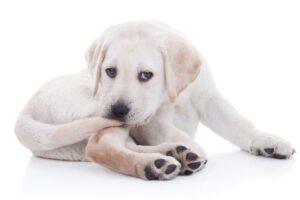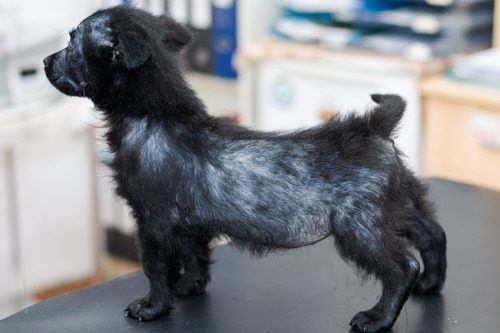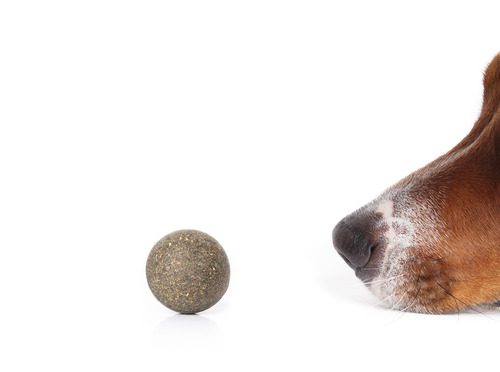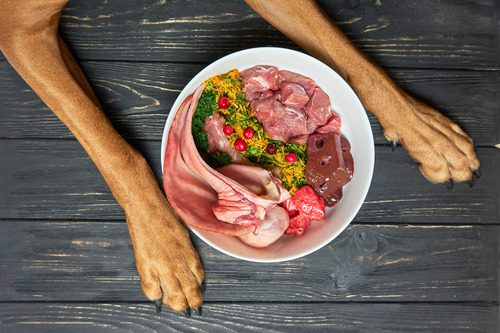What Causes Dog Tail Chewing
Have you ever noticed your dog chewing on their tail? It might seem like just a quirky habit, but dog tail chewing can sometimes be a sign of underlying issues. In today’s post, we’re exploring why dogs chew their tails and what you can do to help them. If your dog is struggling with tail chewing, don’t hesitate to reach out to Best Friends Veterinary Hospital in Cookeville, TN at (931) 881-2037 or in Crossville at (931) 459-2006 for expert advice and care.

Understanding Why Dogs Chew Their Tails
There are several reasons why dogs might chew on their tails. Understanding these can help you determine the best course of action:
- Skin Problems: Issues like allergies, fleas, ticks, or infections can cause irritation, leading to tail chewing.
- Injury: A hurt tail can lead to chewing as a response to pain.
- Behavioral Issues: Sometimes, tail chewing is due to anxiety, boredom, or a compulsive habit.
- Environmental Factors: Irritants in your dog’s environment could cause discomfort, prompting tail chewing.
When to Be Concerned
Look out for excessive chewing, redness, hair loss, sores, or a bad smell around the tail area. If the tail chewing is frequent and seems to cause your dog distress, it’s time to take action.
First Steps to Take
If you notice your dog chewing their tail, check for any visible problems like fleas, ticks, or wounds. Try to distract your dog with toys or activities to stop the chewing. However, these are temporary solutions, and it’s important to address the root cause.
Professional Diagnosis and Treatment
A vet can help diagnose the reason behind the tail chewing. They might check for allergies, skin infections, parasites, or other health issues. In some cases, they may recommend tests or treatments like medication, ointments, or changes in diet.
Home Care and Prevention
There are several things you can do at home to help prevent tail chewing:
- Maintain a clean, flea-free environment.
- Provide a balanced diet to support skin health.
- Ensure your dog gets enough exercise and mental stimulation.
- Consider using dog-safe anti-itch shampoos or sprays.
Managing Behavioral Issues
If the tail chewing is due to behavioral issues, finding ways to reduce your dog’s stress and boredom is key. This might include more playtime, exercise, training, or even consulting a dog behaviorist for severe cases.
Keeping the Tail Clean
Regular grooming can help prevent tail chewing. Keep your dog’s tail clean and well-groomed to avoid matting and irritation that can lead to chewing.
Keeping an Eye on Their Behavior
Pay close attention to your dog’s behavior and habits. Monitoring can help you catch tail chewing early and take steps to prevent it from becoming a bigger problem.
When to Call the Vet
If your dog’s tail chewing leads to severe injury, bleeding, or signs of infection, call your vet immediately. Don’t try to treat serious wounds or infections at home.
Best Friends Veterinary Hospital in Cookeville and Crossville, TN is Here to Help
Tail chewing in dogs can be a sign of various issues, from skin problems to stress. By understanding the causes and taking the right steps, you can help your dog stop chewing their tail and stay happy and healthy. Remember, the team at Best Friends Veterinary Hospital in Cookeville and Crossville, TN, is here to help. If you’re concerned about your dog’s tail chewing, give us a call to schedule an appointment or get more information. Let’s work together to keep your furry friend in great shape!
Recent Posts
About Best Friends Veterinary Hospital
Our veterinarians and staff warmly welcome dogs, cats, and a variety of exotic pets as patients here at our animal hospital, and we offer a host of services to give your unique family member a lifetime of excellent care.





